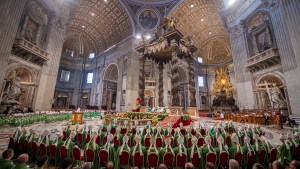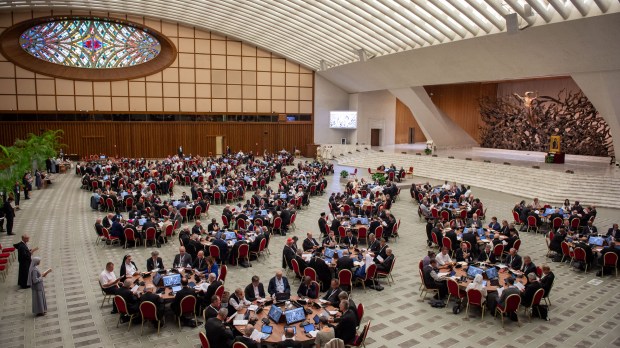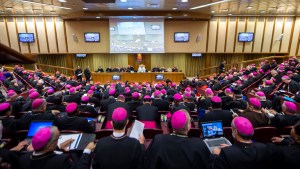Lenten Campaign 2025
This content is free of charge, as are all our articles.
Support us with a donation that is tax-deductible and enable us to continue to reach millions of readers.
While a synod may seem like a modern invention, in reality it has ancient roots and extends in spirit to the earliest days of Christianity.
The word “synod” comes from the Greek synodos, meaning “an assembly.” It consists chiefly in an assembly of Church leaders who come together to discuss various important issues.
The Catholic Encyclopedia confirms this definition, explaining that the word is, “A general term for ecclesiastical gatherings under hierarchical authority, for the discussion and decision of matters relating to faith, morals, or discipline.”
Using this basic definition, it would appear that the first “synod” was what many call the “Council at Jerusalem.” (See below for a consideration of what could be considered the difference between a council and a synod.)
This gathering of Church leadership is narrated in the 15th chapter of the Acts of the Apostles.
But some men came down from Judea and were teaching the brethren, “Unless you are circumcised according to the custom of Moses, you cannot be saved.” And when Paul and Barnabas had no small dissension and debate with them, Paul and Barnabas and some of the others were appointed to go up to Jerusalem to the apostles and the elders about this question … The apostles and the elders were gathered together to consider this matter.
Acts 15:1-3, 6
While modern-day synods look much different than this first synod in Jerusalem, the central spirit remains the same.



